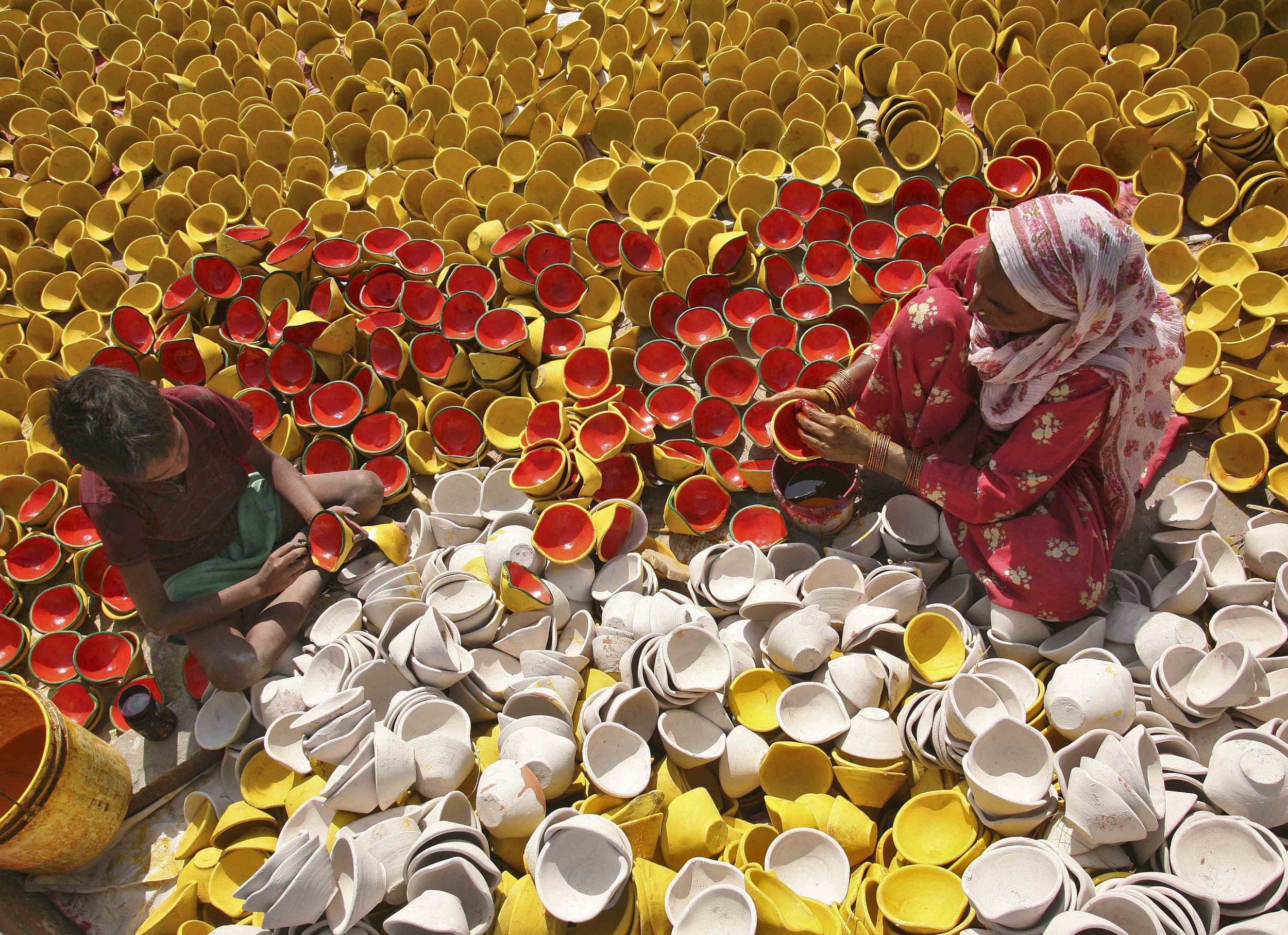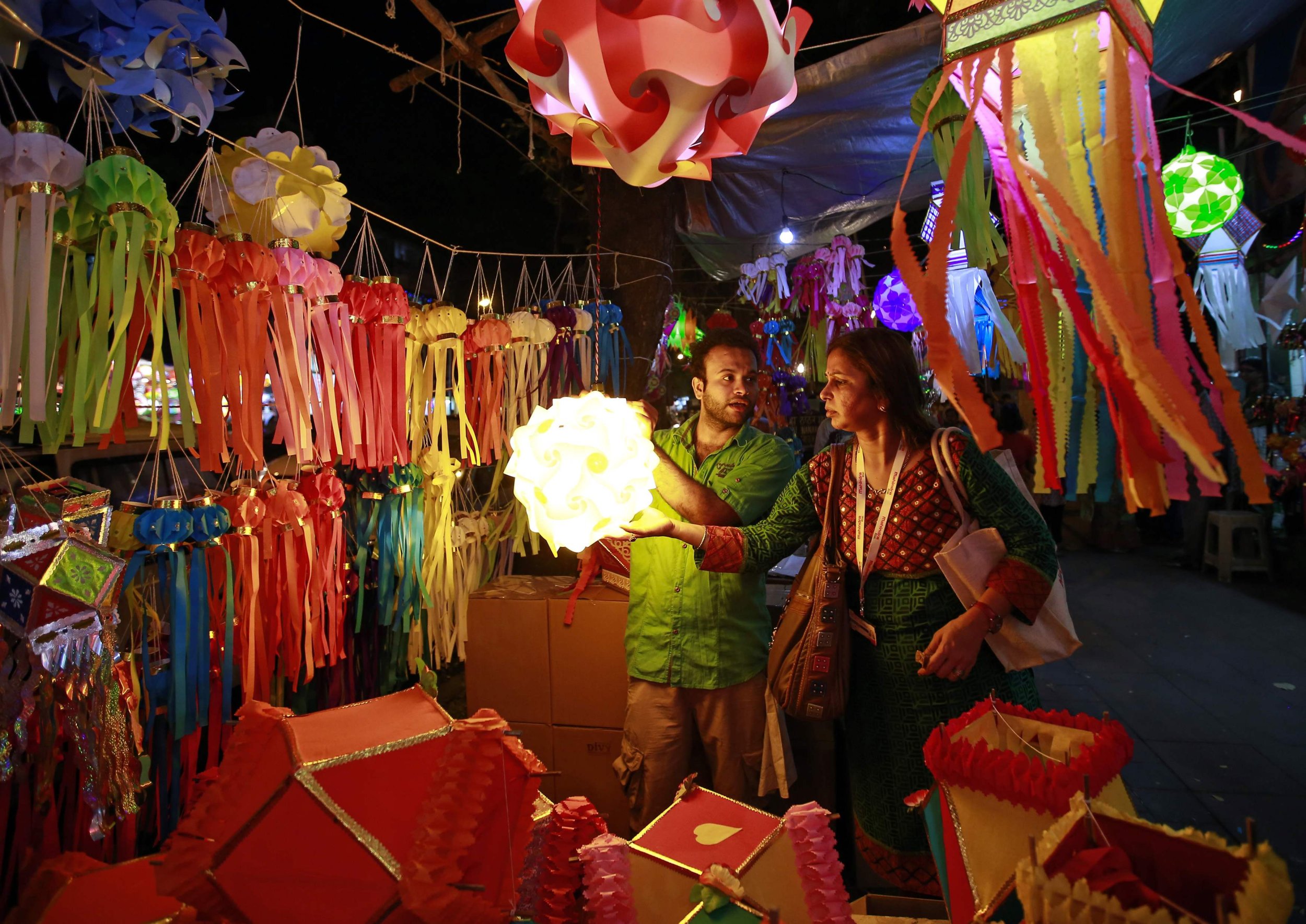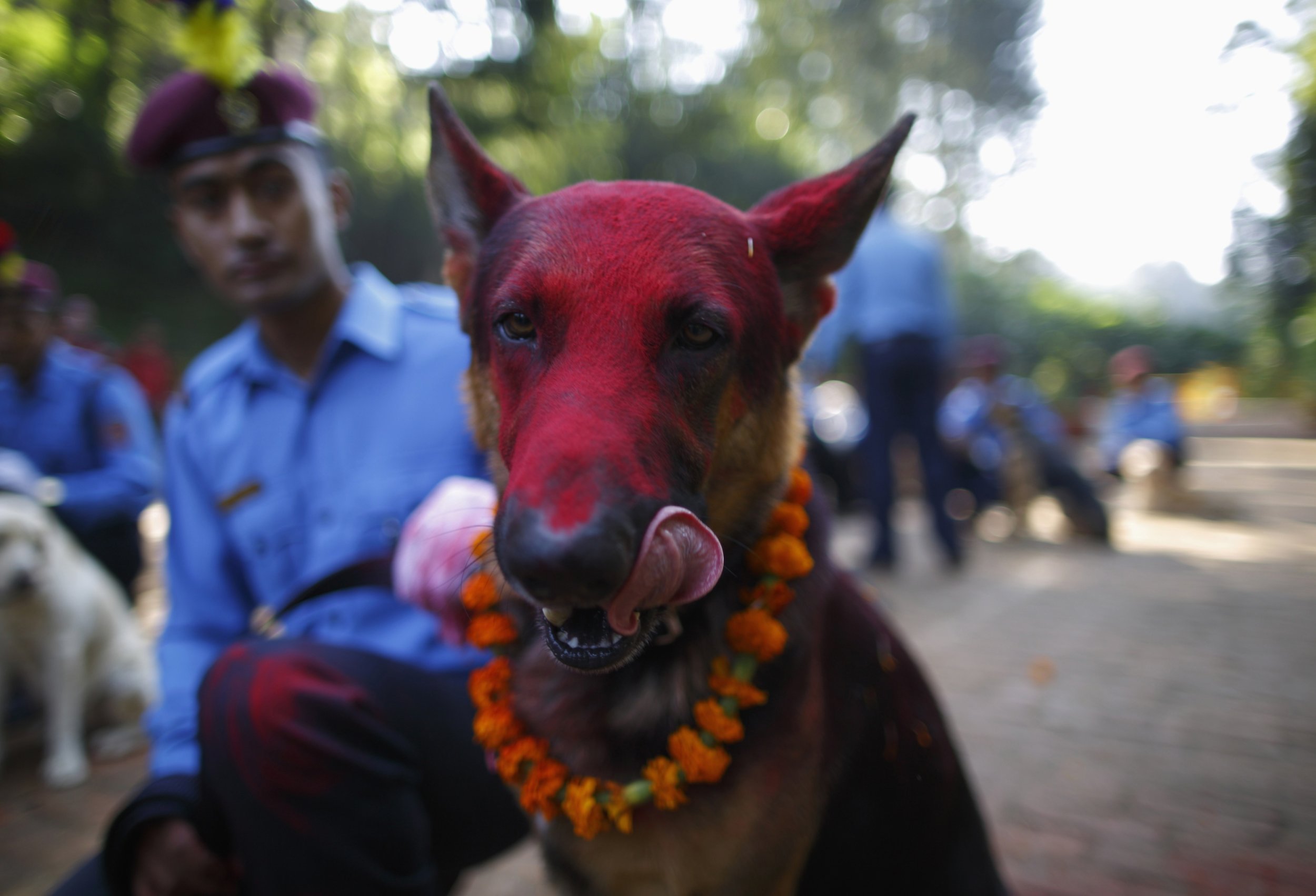Diwali 2014: 3 Things To Know About The Festival Of Lights [PHOTOS]
Diwali, the Hindu festival of light, is one of India’s biggest holidays of the year. The five-day event will be celebrated on Oct. 23 with revelers heading to family gatherings, decorating their homes and shops with glittering clay lamps, watching fireworks displays and bonfires. While the holiday is typically seen as a Hindu one, millions of Sikhs and Jains across the world also take part in the celebration.
What began as a harvest festival where farmers would pray to the goddess of wealth Lakshmi for a successful financial year has now extended all businesses across the Indian subcontinent.
For those unfamiliar with the holiday below are answers to three common questions surrounding Diwali:
What does Diwali mean?
Diwali or Dipawali is named after the rows of clay lamps Indians light outside their homes during the holiday. The clay lamps are called “deepa” in Hindi and the row is “avail.”
The lights have both a mythical and spiritual meaning. For Hindus, Jains, and Sikhs the holiday celebrates the spiritual victory of light over dark, good over evil, and knowledge over darkness.
For Hindus, the lights also can be traced back to the first Hindu legend to mention the use of lights. Lord Rama, a descendant to the Hindu God Vishnu, returns to his kingdom in the ancient Indian city of Ayodhaya after a 14-year exile and wins a battle against a demon king. According to the legend people decorated their houses with light to celebrate the victory.
In Sikh tradition, Diwali celebrates the release of Guru Hargobind, the sixth Sikh Guru, and 52 other princes with him in 1619. According to the story, the Emperor would only release those that could hold on to Guru Hargobind’s coat tails – to limit the number of people who can be released with him. Guru Hargobind made one with 52 strings so all the princes could be freed. Today, Sikhs celebrate this on Diwali by lighting the golden temple.
For Jains, Diwali signifies when Lord Mahavira, the 24th Tirthankara of Jainism known as the religion’s reformer, attained enlightenment in 527 BC. Jains light lamps but also commemorate the festival by lighting “internal lamps” through prayer and meditation.
How is Diwali celebrated?
Diwali is celebrated over a five-day period. The third day is considered the festival’s main day where people gather and worship Goddess Lakshmi, the deity that represents wealth and prosperity. The following day is "Nutan Varsh" – New Year’s Day where family and friends exchange sweets.
Other traditions include large fireworks displays, decorating homes with candles, sharing gifts with family and friends, cleaning one’s house and wearing new clothes during the festival.
In India, houses and shops are usually decorated with Diyas – small earthenware oil lamps fueled by mustard oil. In larger towns, electric lights displays are often used. Much like Christmas in the West, Diwali is associated with gift giving. Shopkeepers tend to raise the prices of their goods, leading some to argue that commercialism has begun to erode the ancient tradition.
The last day of Diwali, known as Bhaubij, commemorates the relationship between brothers and sisters. Siblings exchange gifts and in some traditions, men are not allowed to eat food prepared by their wives on this day.
What’s to eat?
Sweets are a major component to Diwali. Indian sweetmeats, known as "mithai," are confectionary desserts typically found in South Asia. Other sweets include "Laddoos", "barfis" and "halwas." These snacks are nibbled on throughout the day and can be eaten alongside more savory dishes.
"As in most Indian homes, food is at the center of our culture and family get-togethers, and as such, it forms the focal point for Diwali celebrations," Karam Sethi, co-owner and head chef of Trishna, an upscale London Indian restaurant, told The Independent.
Most families have a favorite dish to serve during the festival. The dishes are usually prepared at home to welcome guests who pop in to chat, exchange gifts and watch fireworks displays.





© Copyright IBTimes 2024. All rights reserved.






















